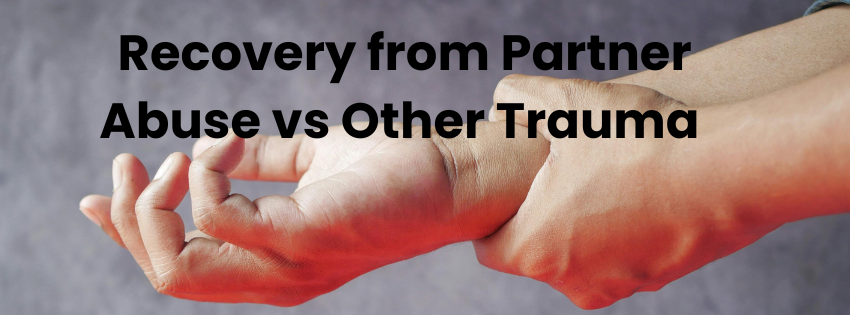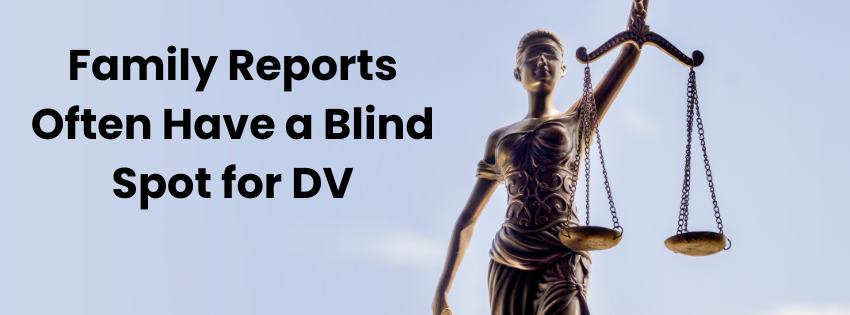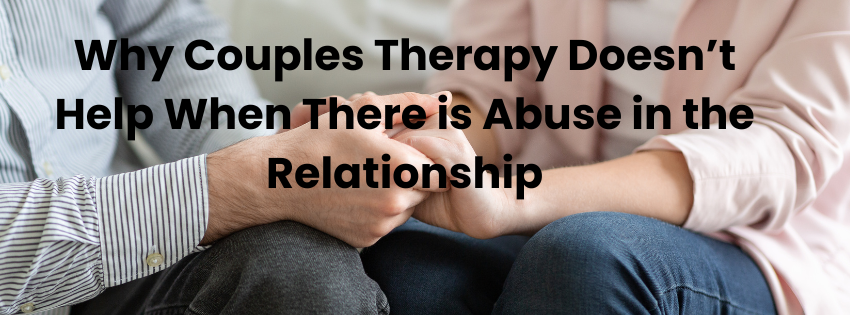In my practice, I frequently work with mothers who find themselves in the family court…

Key Differences in Working with Trauma Caused by Intimate Partner Violence vs. Other Types of Trauma
Recovering from trauma is never a straightforward journey, and the type of trauma experienced significantly influences the approach to healing. Intimate Partner Violence (IPV) trauma recovery, in particular, requires a unique therapeutic approach due to the dynamics of the abusive relationship, the ongoing nature of the trauma, and the deep emotional and psychological scars survivors often carry. When comparing IPV trauma to other forms of trauma, such as those inflicted by people who are not in close attachment relationships to the victim or by traumatic events, key differences emerge that inform how therapists would approach recovery.
Relationship Dynamics and Control
A fundamental feature of IPV is the power and control dynamics embedded within the relationship. In these relationships partners do not just experience a one-time trauma; they are often subjected to prolonged emotional, psychological, and sometimes physical control. Even after separation, many continue to face post-separation abuse, where the abuser retains control through legal, financial, or co-parenting channels. This ongoing manipulation complicates the recovery process. Additionally, many survivors continue to carry the destructive negative messages from the abuser long after the relationship has ended, making it difficult to break free from their distortion.
Other Trauma
In contrast, trauma inflicted by people in non-attachment relationships or external events typically involves a singular traumatic incident. Once the traumatic event occurs, the survivor is often free from ongoing relational control or manipulation. There is no continued contact with the perpetrator, and the survivor does not experience the same relational abuse that lingers post-trauma. This difference makes recovery from non-IPV trauma potentially more straightforward, as the survivor does not need to navigate continuous control or manipulation.
Emotional and Psychological Impact
The emotional impact of IPV is often long-lasting and deeply ingrained. Survivors of emotional abuse experience chronic self-doubt, self-gaslighting, and deep-seated shame and guilt. These effects are typically reinforced by the abuser’s tactics of invalidation and criticism. Over time, survivors lose a sense of their own identity, self-worth, and judgment. The psychological damage is often so profound that it can take years of healing to reclaim confidence and rebuild self-esteem.
Other Trauma
While trauma from external events—such as assaults by strangers or accidents—can also result in emotional challenges like PTSD or grief, it is generally easier to pinpoint and process. Survivors may experience sadness, anxiety, or flashbacks, but they typically do not experience the identity erosion or prolonged psychological manipulation that IPV survivors face. The trauma is more likely to be external, allowing the survivor to begin processing the emotional impact sooner than someone dealing with the psychological complexity of IPV.
Safety and Autonomy
Survivors of IPV seek to regain freedom from coercive control and often deal with ongoing safety concerns, such as stalking or legal battles. The abusive partner may still attempt to exert control post-separation through various means, including manipulation of children or finances. A key focus in IPV recovery is helping the survivor reclaim autonomy and independence, often through the establishment of new boundaries, safety planning, and assistance with navigating legal or financial systems.
Other Trauma
In contrast, once a traumatic event inflicted by a stranger or external force ends, the survivor typically no longer faces direct threats from the perpetrator. The safety concerns often dissipate after the event, and the survivor does not have to navigate ongoing manipulation or control. Recovery from external trauma is more focused on processing the emotional aftermath, rather than constantly reassessing safety or dealing with post-trauma relational dynamics.
Social Support and Isolation
A major challenge for IPV survivors is the social isolation enforced by the abuser. Tactics such as emotional manipulation, isolation from friends and family, and undermining relationships with others make it difficult for survivors to maintain a healthy support network. Therapy for IPV survivors needs to include rebuilding trust in others and reestablishing connections to supportive friends, family, or support groups. This can be a slow and difficult process, as many survivors feel shame or embarrassment about the abuse.
Other Trauma
Survivors of non-IPV trauma, such as those affected by a violent assault or a natural disaster, may still experience a sense of isolation, but their recovery does not often involve the same level of forced disconnection from others. External trauma survivors typically have more community support available and may find it easier to reconnect with friends and family during the healing process. The rebuilding of trust in others may be less complex than in IPV recovery.
Non-Linear and Cyclical Healing
The recovery process for IPV survivors is never linear. Survivors experience relapses or setbacks, particularly when triggers from the abusive relationship resurface. The cyclical nature of recovery means that survivors often have to revisit earlier stages of healing as they encounter new challenges or emotions related to the abuse. The ongoing abuse that often accompanies IPV make it a more complex process of healing.
Other Trauma
Recovery from trauma inflicted by external events typically follows a more linear trajectory, with a clear progression through stages such as shock, grief, and acceptance. Although setbacks can occur, survivors of external trauma usually do not need to revisit the same trauma repeatedly in the same way IPV survivors do. Their healing often involves processing the initial event and gradually moving through the emotional stages of recovery.
Therapy Focus and Interventions
Therapy for IPV survivors focuses heavily on trauma-informed care, which means acknowledging the ongoing relational dynamics, setting healthy boundaries, and addressing both the emotional and physical impacts of the abuse. Special attention is given to the dynamics of coercive control, gaslighting, and post-separation abuse. Therapy also focuses on helping survivors regain their autonomy, identity, and self-worth through targeted interventions.
Other Trauma
Therapy for survivors of external trauma is often more focused on processing the trauma itself, using methods such as Cognitive Behavioral Therapy (CBT), EMDR, or other trauma-based interventions. The focus may be on managing PTSD symptoms, reducing flashbacks, and addressing grief. While therapy for other forms of trauma certainly involves building coping mechanisms and emotional resilience, it generally does not require the same level of work around rebuilding identity or navigating ongoing relational dynamics.
Conclusion
Recovering from IPV trauma requires a unique therapeutic approach due to the complex, ongoing dynamics of coercive control, the non-linear nature of healing, and the profound emotional and psychological impact. Survivors of IPV face a recovery journey that involves reclaiming autonomy, regaining self-worth, and navigating safety concerns, often well beyond the separation from the abuser. In contrast, survivors of trauma inflicted by strangers or external events generally face more straightforward recovery, centred on processing grief and emotional healing, with less emphasis on ongoing relational dynamics. Understanding these differences is essential for therapists in providing effective, compassionate care tailored to the unique needs of IPV survivors.


